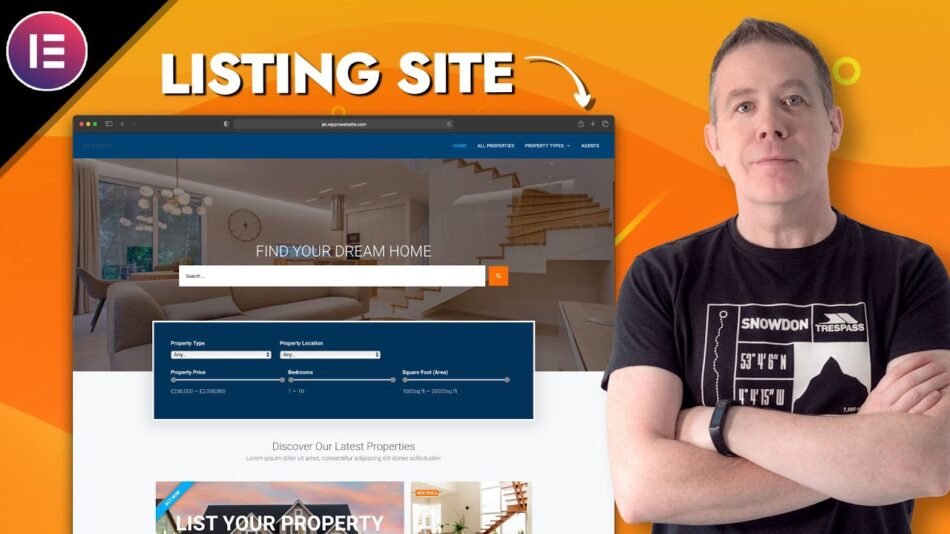In today’s digital age, having a strong online presence is crucial for businesses of all sizes. One effective way to establish an online presence is by creating a business listing website. These websites serve as directories where businesses can list their services, contact information, and other relevant details. One of the most user-friendly and versatile tools for building such a website is Elementor, a popular WordPress page builder. In this article, we’ll guide you through the process of creating a business listing website with Elementor, step by step.
Why Choose Elementor for Your Business Listing Website
Before we dive into the nitty-gritty of creating a business listing website, let’s understand why Elementor stands out as an excellent choice:
1. User-Friendly Interface
Elementor offers a drag-and-drop interface that makes website building a breeze. You don’t need to be a tech guru to get started.
2. Wide Range of Widgets
With Elementor, you have access to a plethora of widgets and elements that can be customized to suit your website’s needs. This means you can create a unique and visually appealing business listing platform.
3. Seamless Integration
Elementor seamlessly integrates with WordPress, the most popular content management system. This integration ensures that your website is easy to manage and update.
4. Mobile Responsiveness
In today’s mobile-first world, it’s crucial for your website to look and function flawlessly on mobile devices. Elementor ensures your website is fully responsive.
Getting Started with Elementor
Now that we’ve highlighted the advantages of using Elementor let’s begin the step-by-step process of creating your business listing website.
1. Choose a Domain and Hosting
The first step is to choose a domain name and select a reliable hosting provider. Ensure your domain name reflects your business’s identity and is easy to remember.
2. Install WordPress
Once you have your domain and hosting sorted, install WordPress. Most hosting providers offer a one-click WordPress installation.
3. Install Elementor
Within your WordPress dashboard, install the Elementor plugin. You can do this by navigating to ‘Plugins’ and clicking ‘Add New.’
4. Select a Business Listing Theme
Choose a WordPress theme that is compatible with Elementor and suits the style of your business listing website.
5. Create Essential Pages
You’ll need key pages such as the homepage, listing submission page, and contact page. Use Elementor to design these pages.
Also read: Catalysts of Success: Must-Have Plugins for Your Business Listing Website
Customizing Your Business Listing Website
Now that you have the basic structure in place, let’s dive into customizing your website.
1. Add Business Listing Fields
Using Elementor’s form builder, create custom fields for business listings. These could include business name, address, contact information, and more.
2. Implement a Search Functionality
Make it easy for users to find businesses on your website by adding a search bar. Elementor’s search widget can help you achieve this.
3. Design and Layout
Utilize Elementor’s design capabilities to create an attractive layout for your listings. Pay attention to color schemes, typography, and overall aesthetics.
4. User Registration
Allow businesses to register and manage their listings on your website. Elementor offers user registration widgets for this purpose.
Launch and Promote
Once you’ve customized your business listing website to your satisfaction, it’s time to launch it and promote it to your target audience.
1. Test for Functionality
Before going live, thoroughly test your website to ensure all features and functionalities work seamlessly.
2. Optimize for SEO
Implement on-page SEO techniques to improve your website’s visibility on search engines. Elementor allows you to optimize each page individually.
3. Social Media Integration
Integrate social media sharing buttons to encourage users to share business listings, increasing your website’s reach.
4. Content Marketing
Create valuable content related to your niche to attract visitors and establish yourself as an authority in your industry.
Conclusion
Creating a business listing website with Elementor is an efficient and user-friendly way to establish an online presence for your business. With its powerful features and customization options, you can craft a unique and appealing platform that serves the needs of both businesses and users.
FAQs
1. Is Elementor a free plugin?
No, Elementor offers both a free version with basic features and a paid Pro version with advanced functionality.
2. Can I monetize my business listing website?
Yes, you can monetize your website by offering premium listing packages, advertising opportunities, or affiliate marketing.
3. Do I need coding skills to use Elementor?
No, Elementor is designed for users without coding skills, thanks to its intuitive drag-and-drop interface.
4. Is Elementor SEO-friendly?
Yes, Elementor provides various SEO tools and settings to help improve your website’s search engine rankings.
5. Can I add maps to business listings with Elementor?
Yes, Elementor allows you to integrate maps and location services into your business listings for added convenience.
Creating a business listing website with Elementor is a rewarding endeavor that can boost your online presence and help businesses gain visibility. Follow these steps, and you’ll be well on your way to creating a successful business directory platform.



Pingback: Choosing the Best ThemeForest Template for Your Business Listing Website | Tips and Recommendations